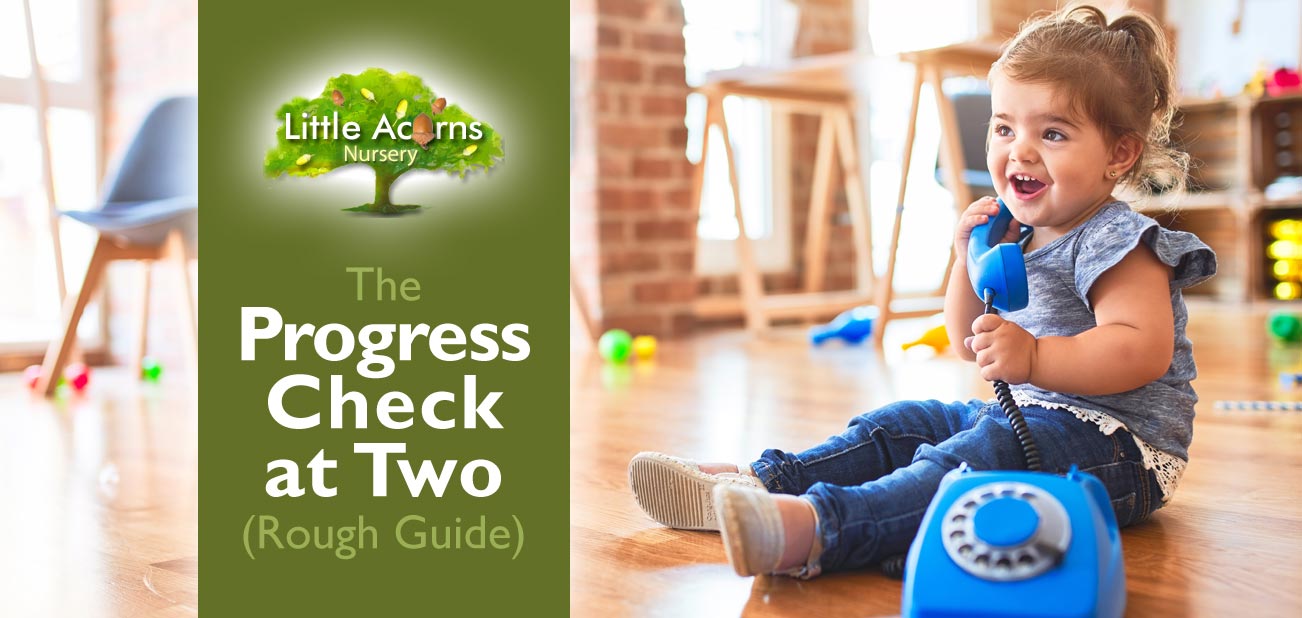
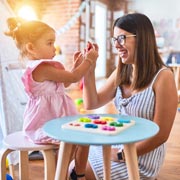 Every 2-year-old attending registered childcare settings in England is subject to what’s known as a ‘Progress Check at 2’. Today we explain what it entails, who is involved and how it benefits little ones. Here’s our rough guide to the Progress Check at 2:
Every 2-year-old attending registered childcare settings in England is subject to what’s known as a ‘Progress Check at 2’. Today we explain what it entails, who is involved and how it benefits little ones. Here’s our rough guide to the Progress Check at 2:
What Exactly is the Progress Check at 2?
The ‘Progress Check at 2’ is, as the name suggests, a complete progress check for children who have reached the age of two. It should be completed before their 3rd birthday and appraises their progress in all the key areas of their learning and development. It’s actually a part of the continuous assessment that goes hand-in-hand with the Early Years Foundation Stage (EYFS). Amongst other things, the EYFS governs the learning and development curriculum that’s in place for children attending officially-registered childcare/early years education settings in England. It is appropriate to check that all is well in such areas, particularly at this critical age, and we’ll explain why later in this guide.
The ‘Progress Check at 2’ is Not the Same as the ‘2-Year Review’ — But They’re Linked
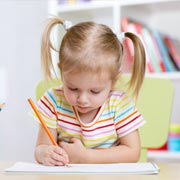 The Progress Check at 2 should not be confused with the Healthy Child Programme’s 2-Year Review that 2-year-olds also undergo around the same age. While the ‘Progress Check at 2’ looks at the child’s learning and development progress and is the topic of today’s guide, the separate ‘2 Year Review’ is more about the child’s health and wellbeing and is undertaken by healthcare professionals like health visitors. They will look at things like overall health, immunisation uptake, physical and mental health and development, overall wellbeing and support levels from parents, carers or guardians.
The Progress Check at 2 should not be confused with the Healthy Child Programme’s 2-Year Review that 2-year-olds also undergo around the same age. While the ‘Progress Check at 2’ looks at the child’s learning and development progress and is the topic of today’s guide, the separate ‘2 Year Review’ is more about the child’s health and wellbeing and is undertaken by healthcare professionals like health visitors. They will look at things like overall health, immunisation uptake, physical and mental health and development, overall wellbeing and support levels from parents, carers or guardians.
Although the two reviews are different, there are definite areas of cross-over, so it makes sense for both reviews to align and feed into each other. It’s therefore useful for them both to be undertaken at a similar time, in tandem if possible. In this way, a 360 degree picture can be put together to give a complete, all-round, holistic view of the child at this milestone age. In so doing, any issues can be picked up early, so that suitable measures or interventions can be put in place to improve things for the particular child under review. For this reason, parents, guardians or carers of 2-year-olds are encouraged to allow the sharing of information*, pertaining to their child, between the various professionals involved in each of the two reviews.
Ofsted inspections will also check to ensure that Progress Checks at 2 are undertaken in an appropriate way at childcare settings. They also recognise the benefits of these progress checks aligning with the separate, more health-based, 2-Year Reviews.
The Significance of Age 2
The age of two is a significant one, hence both reviews taking place at this age. It’s a key age where the levels and progress of each child’s learning, speech, language, cognitive, physical, social and emotional development are becoming much more clear. Optimising each area as early as possible will pay long-term dividends for children, so it is a great moment to check that everything is heading in the right direction.
Areas of Focus in the Progress Check at 2
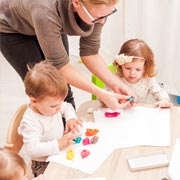 The three ‘prime’ areas of the Early Years Foundation Stage (EYFS) curriculum are also the core focus areas of the Progress Check at 2. Hence, the checks will look to see how well the child is progressing primarily in their:
The three ‘prime’ areas of the Early Years Foundation Stage (EYFS) curriculum are also the core focus areas of the Progress Check at 2. Hence, the checks will look to see how well the child is progressing primarily in their:
- Communication and Language;
- Physical Development;
- Personal, Social and Emotional Development.
Having said that, the early years professionals who undertake the progress checks are at liberty to also report findings in other areas of the child’s learning and development should they deem it appropriate. For example, they may also include a summary of the child’s progress in the remaining 4 (‘specific’) areas of the EYFS curriculum. As anyone familiar with the EYFS will know, these are Literacy, Mathematics, Understanding the World and Expressive Arts & Design.
Who Undertakes the Progress Check at 2?
The Progress Check at 2 is a joint undertaking between the child’s early years/childcare provider, their parents, guardians or carers and, where appropriate, their health visitor too. Once complete, a written summary of the progress check will be provided to parents, or carers/guardians, as appropriate.
Identifying Support Areas Where Needed
 The core idea behind the Progress Check at 2 is to discover whether progress is at expected levels for the child’s age and development.
The core idea behind the Progress Check at 2 is to discover whether progress is at expected levels for the child’s age and development.
Using the findings of the progress check as a kind of benchmark for each individual child at that age, children can then be supported in any ways that will help optimise their progress going forwards. By sharing the findings with parents, any ongoing support that the child needs can also continue at home as well as at nursery, pre-school or other childcare setting that they attend.
Once identified, any strengths can be further enhanced and any areas of concern can be mitigated through extra help and support if needed. An example would be where an area of specific educational need or disability has been identified in the child. In such cases, the childcare provider’s Special Educational Needs Co-ordinator (SENCo) will become involved along with any other health professionals or specialists* if required. Together, they would put in place a support plan of measures that are most likely to help the child in any areas in which they are struggling. Such a plan will include both strategies and specific activities that will be designed to help the child, whether that’s at nursery, at home, or both.
Preparing Children for School
Through implementing the progress check and setting up support so early in their lives, children are more likely to overcome areas where they were struggling by the time they start school. This avoids them being held back at such a crucial milestone. Without such measures, they could otherwise have a bad start at school and this could lead to a detrimental domino effect in their education and development going forwards. As you can see, the Progress Check at 2 is therefore incredibly important — and a powerful tool to help little ones thrive.
Outstanding Childcare Services at an Outstanding Nursery in Clayton-le-Woods, Chorley


If you’d like to give your child the very best start in life, choose an award-winning nursery/pre-school and one that’s ranked as an outstanding nursery by Ofsted. Little Acorns is just such a nursery and even has its own Forest School. With all of this, it’s hard not to consider it the best childcare service in Clayton-le-Woods, Clayton Green, Clayton Brook, Chorley, or indeed Central Lancashire. Register for a nursery place or contact us to arrange a guided visit. You and your little one can then see Little Acorns for yourselves. We’re on hand to answer any questions too. Please choose a button to take the first step:
* Except where it is required by law, information sharing with third parties only takes place when permission has been granted by the child’s parents, carers or legal guardians (as appropriate).

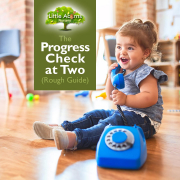
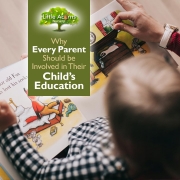
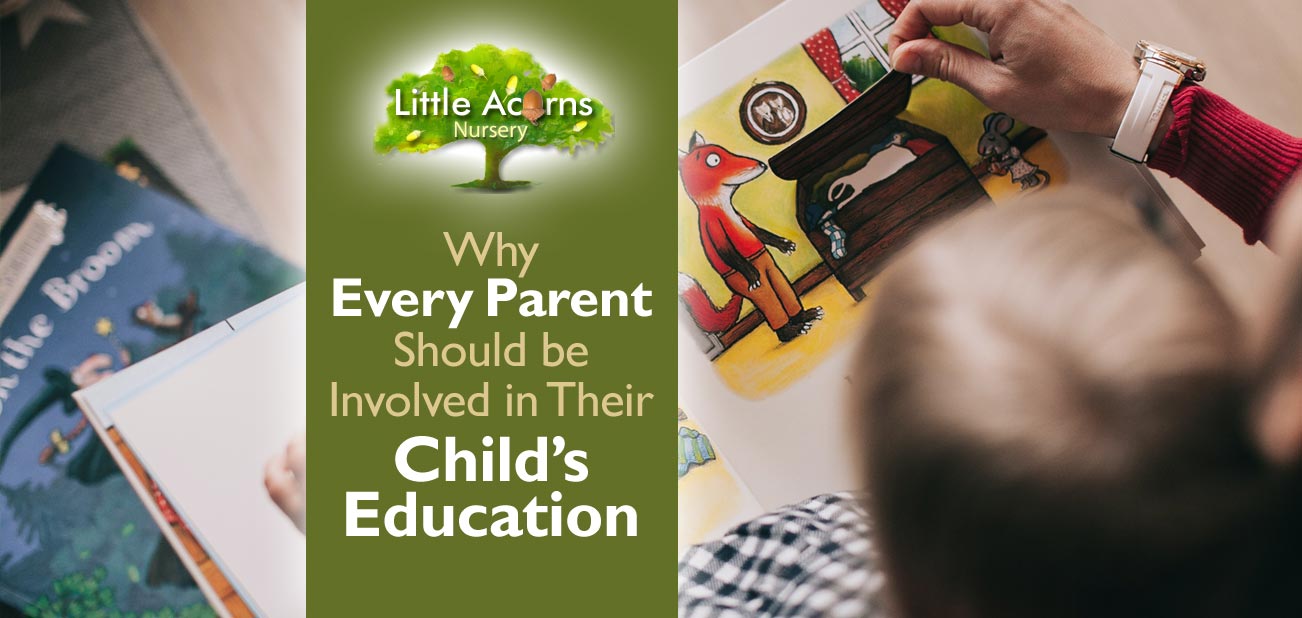
 Indeed, parents can be thought of as key to their children’s success, if they support children’s education in the right ways. We’ll go through exactly what that means, along with some of the many benefits, in this article.
Indeed, parents can be thought of as key to their children’s success, if they support children’s education in the right ways. We’ll go through exactly what that means, along with some of the many benefits, in this article. Choose the Right Setting
Choose the Right Setting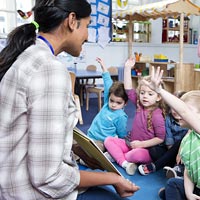 Parents of successful, grade A students, will generally also have engaged with staff at nursery/pre-school and school. That includes at parents’ evenings, of course, but parents should also be fully abreast of their child’s progress at every point in between. Parents and staff need to talk and feed back to each other about each child under their care and, indeed, that’s exactly what we do at Little Acorns Nursery. This, and a personal development progress folder for every child, is all part of the EYFS curriculum at the nursery in fact. In this way, parents and staff can each see the bigger picture and identify where successes are happening for the child, or where more work is needed — including at home.
Parents of successful, grade A students, will generally also have engaged with staff at nursery/pre-school and school. That includes at parents’ evenings, of course, but parents should also be fully abreast of their child’s progress at every point in between. Parents and staff need to talk and feed back to each other about each child under their care and, indeed, that’s exactly what we do at Little Acorns Nursery. This, and a personal development progress folder for every child, is all part of the EYFS curriculum at the nursery in fact. In this way, parents and staff can each see the bigger picture and identify where successes are happening for the child, or where more work is needed — including at home.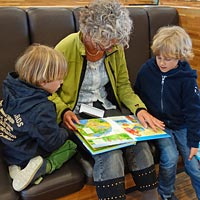 Parents can help children with homework too, of course. They can explain things that the child is perhaps confused or unclear about, in an unrushed, relaxed home environment. Parents can work through their approach to finding answers to questions and explain how they arrived at those answers. This, too, is like gold dust to an otherwise struggling child. It’s one of the reasons why the human race itself has come such a long way — through shared information.
Parents can help children with homework too, of course. They can explain things that the child is perhaps confused or unclear about, in an unrushed, relaxed home environment. Parents can work through their approach to finding answers to questions and explain how they arrived at those answers. This, too, is like gold dust to an otherwise struggling child. It’s one of the reasons why the human race itself has come such a long way — through shared information.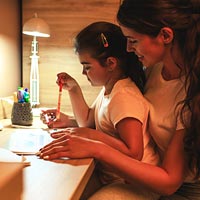
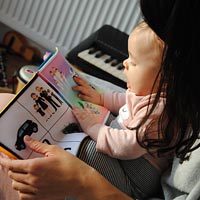 • In turn, that ultimately leads to better careers as adults, with higher rates of pay.
• In turn, that ultimately leads to better careers as adults, with higher rates of pay.